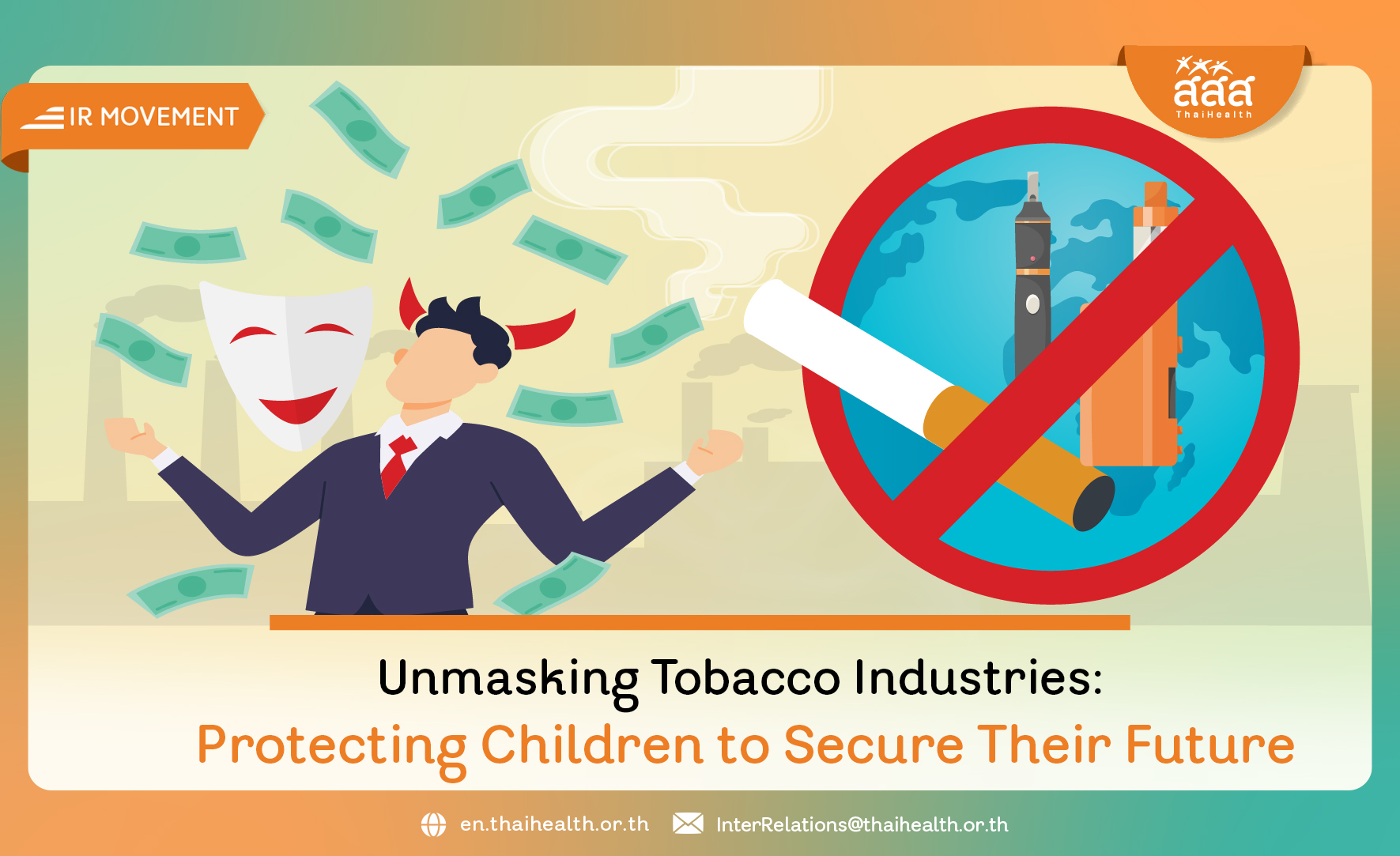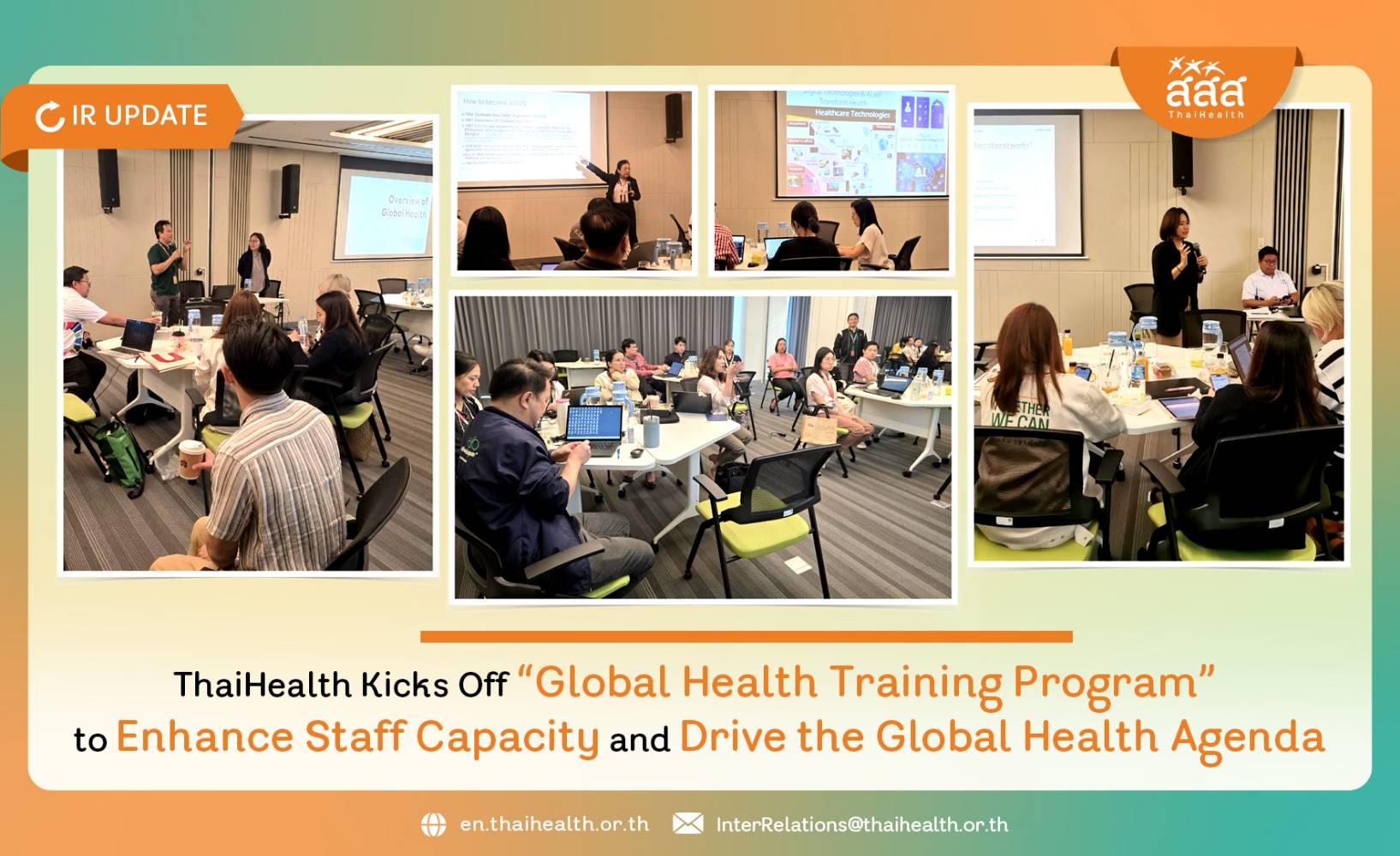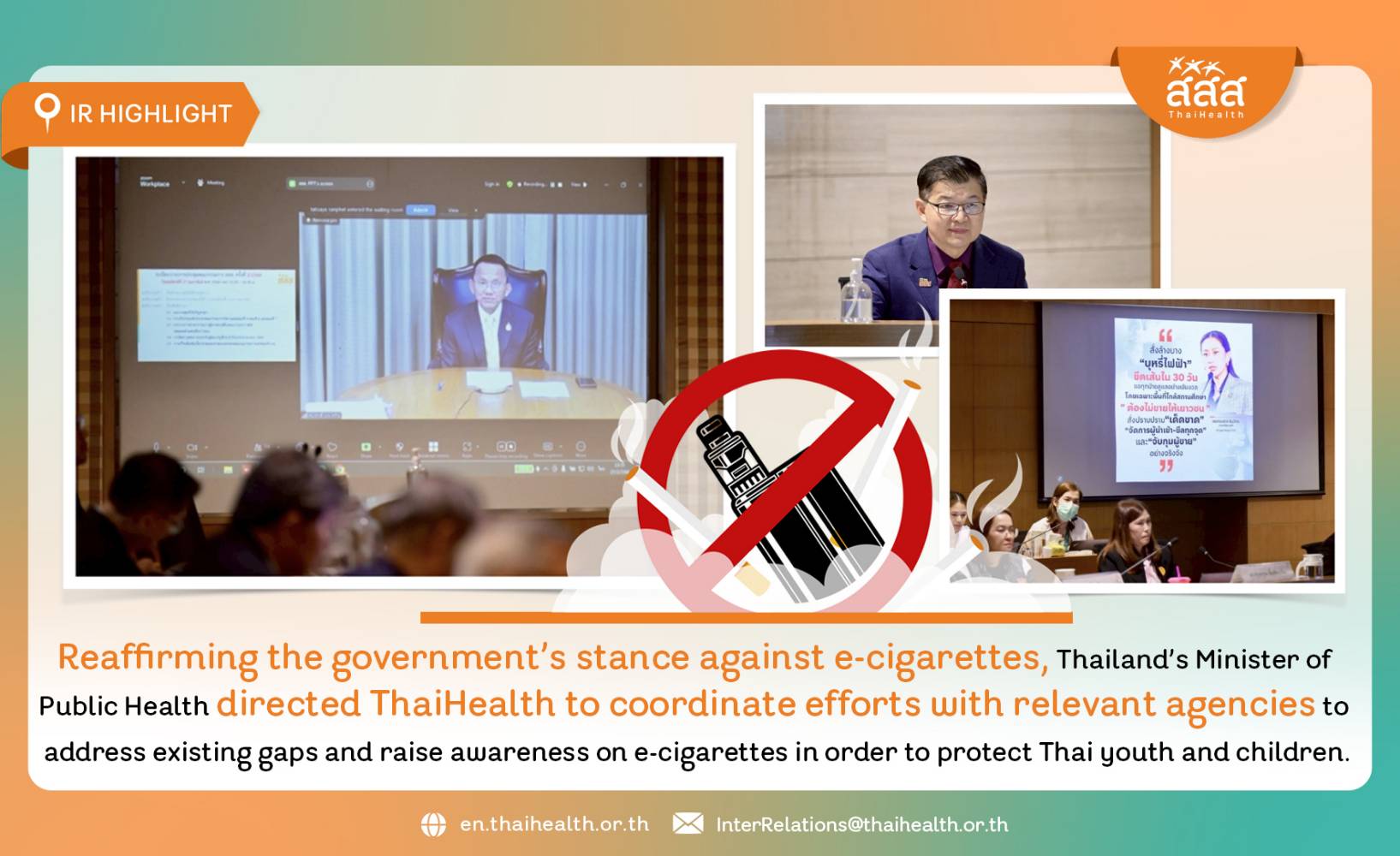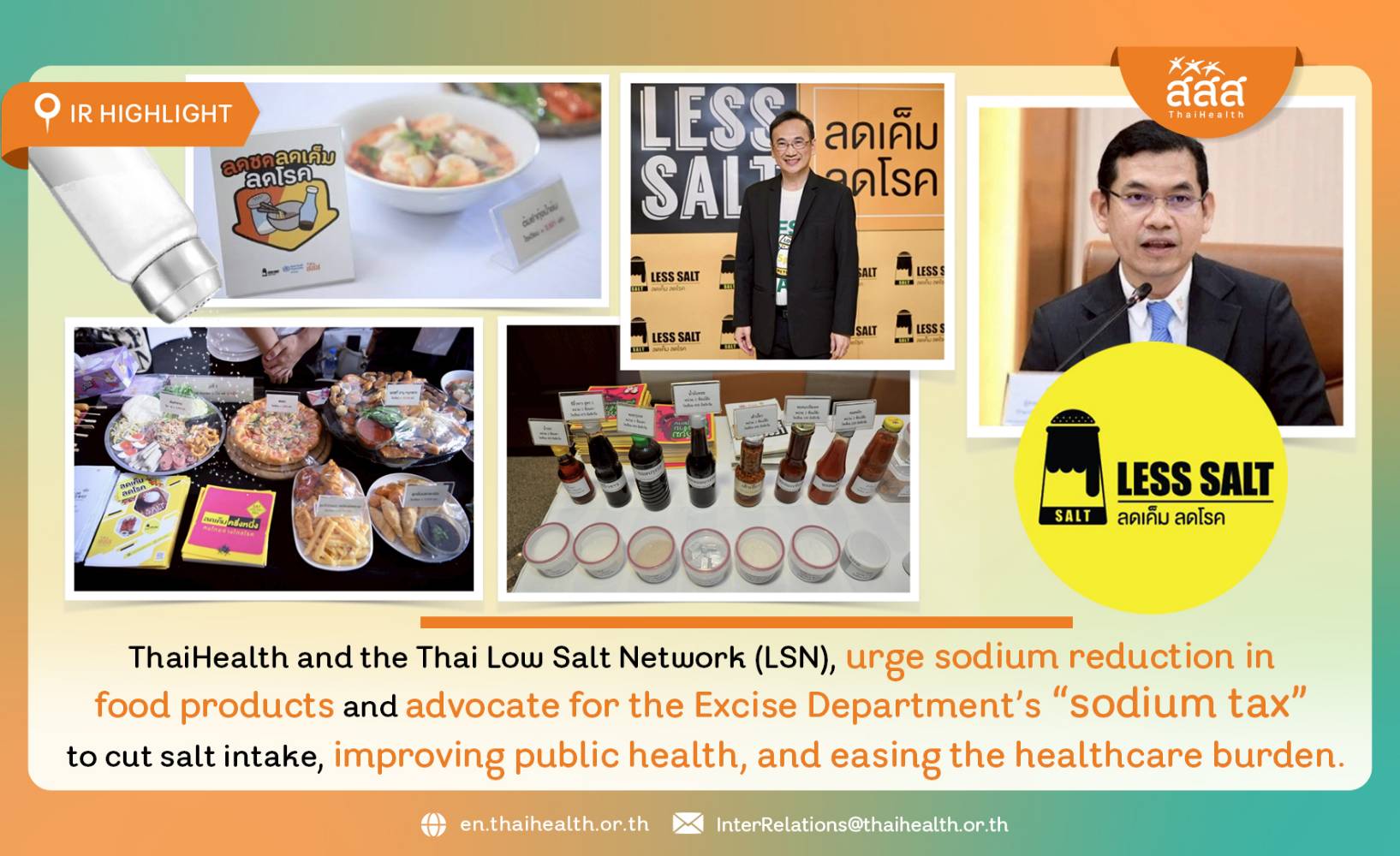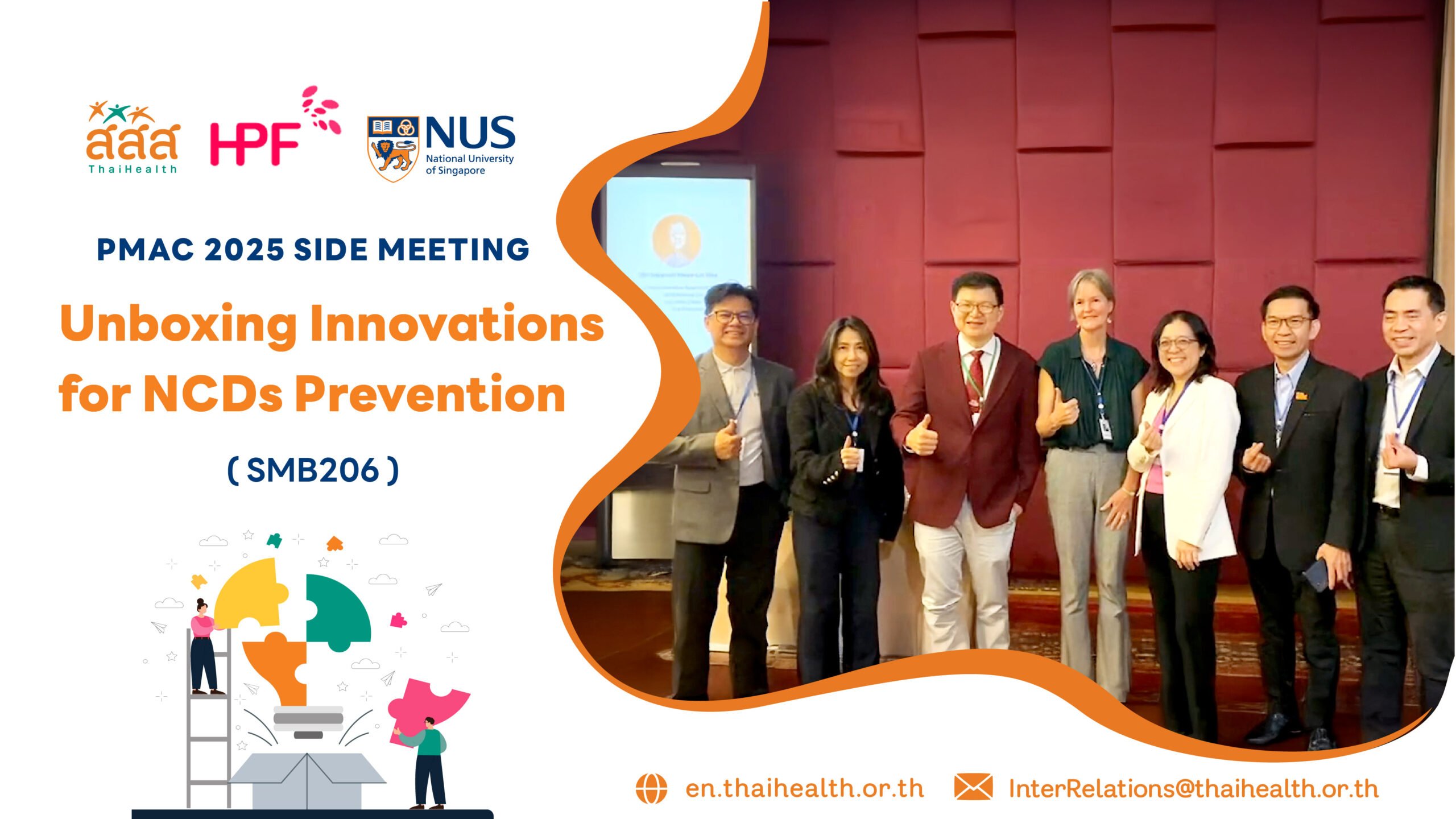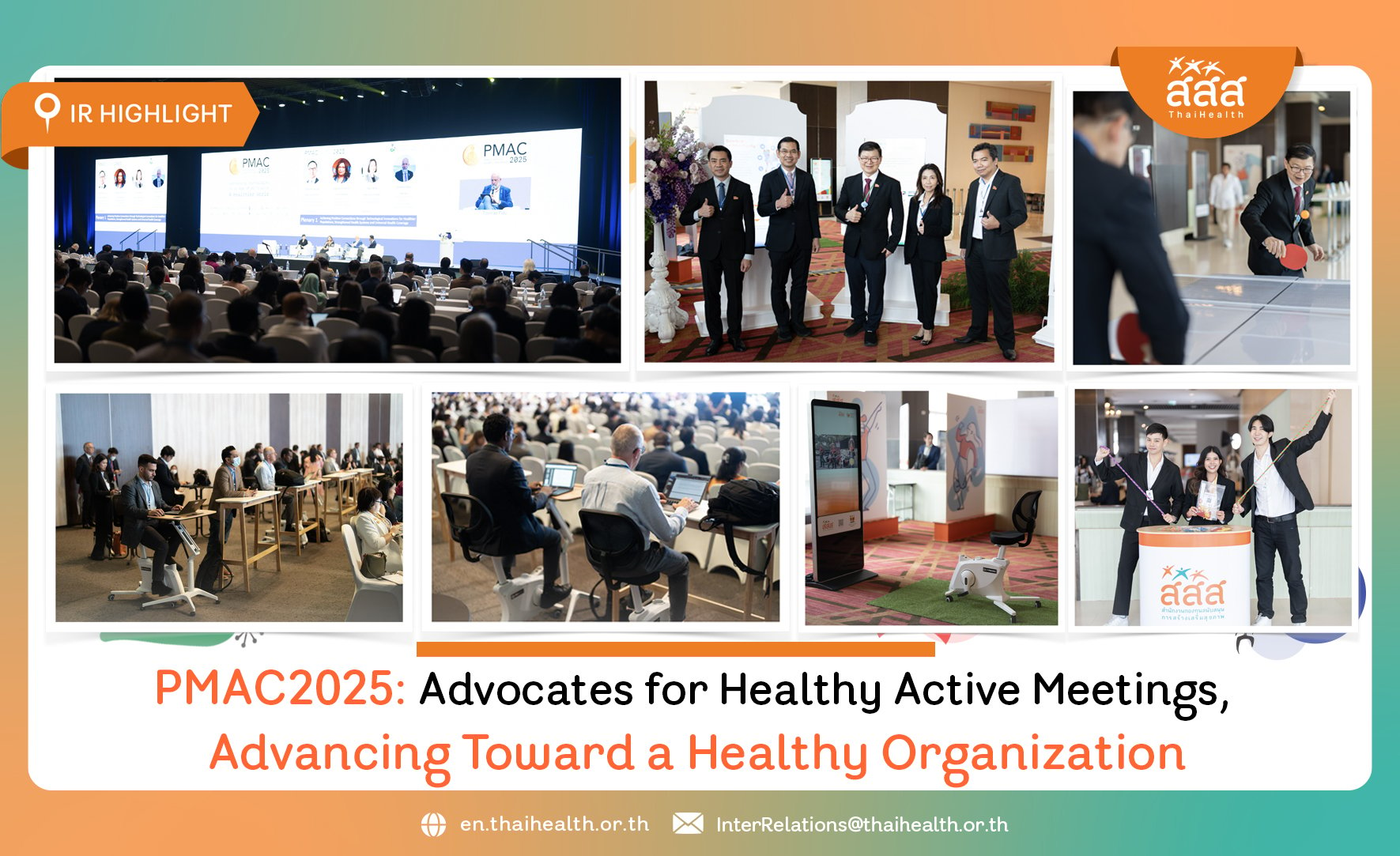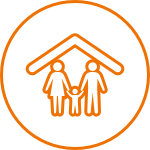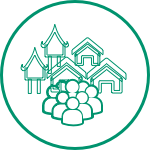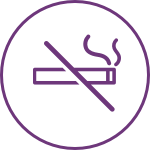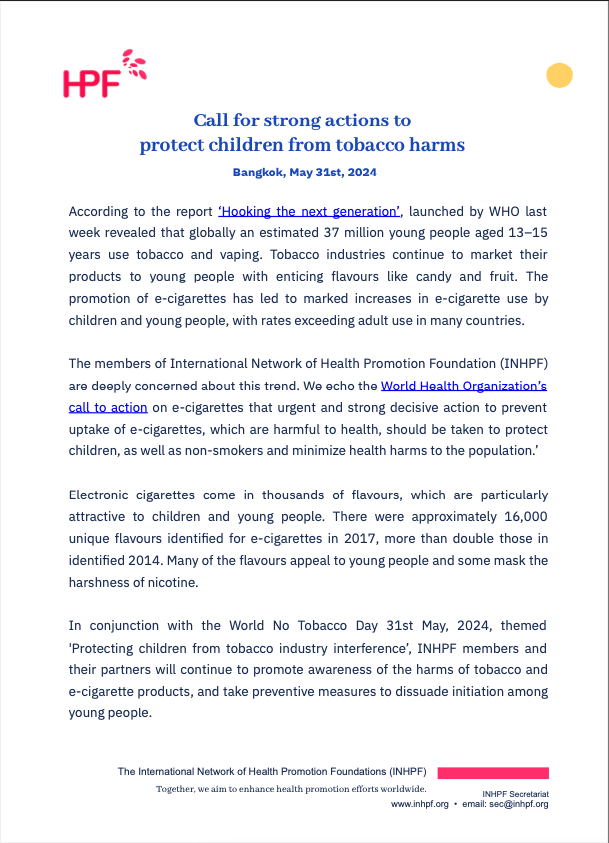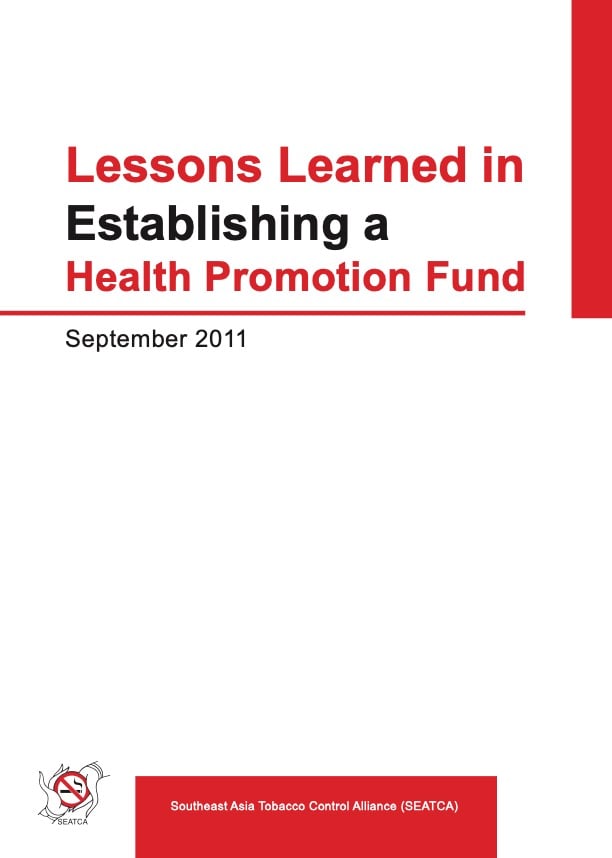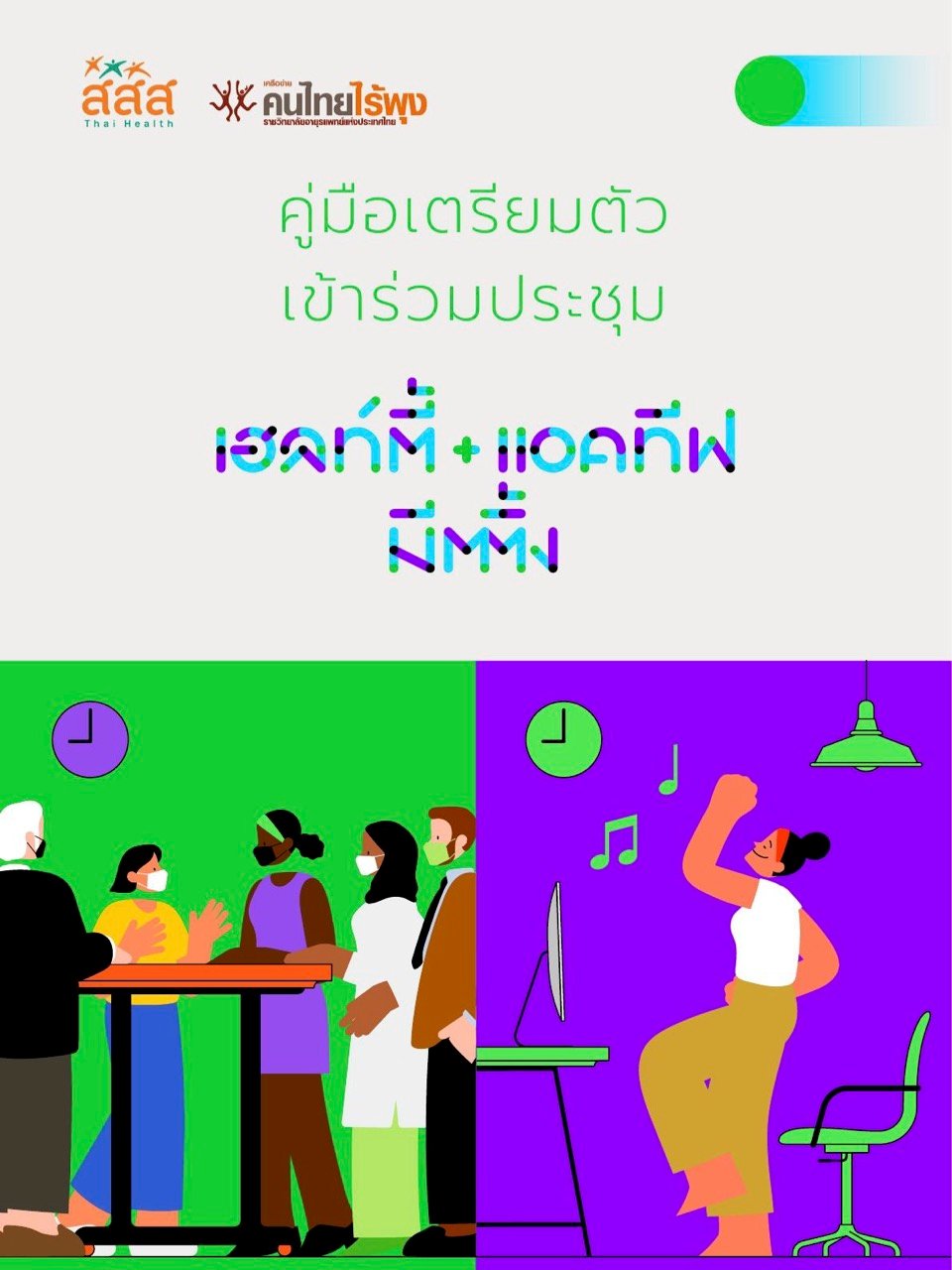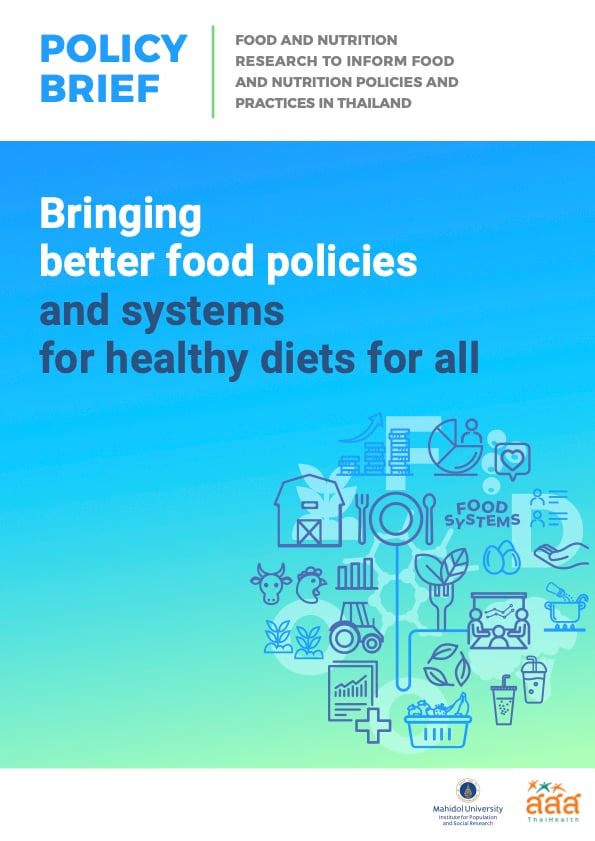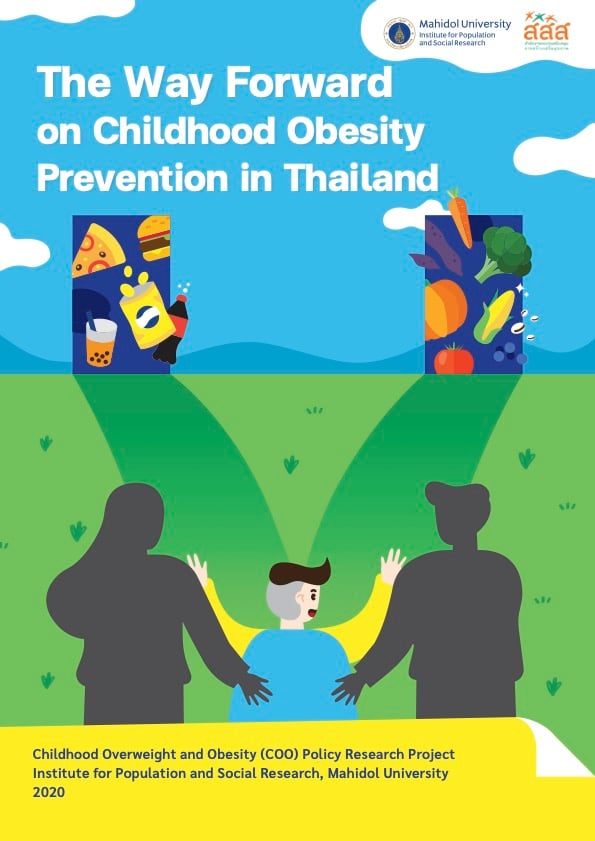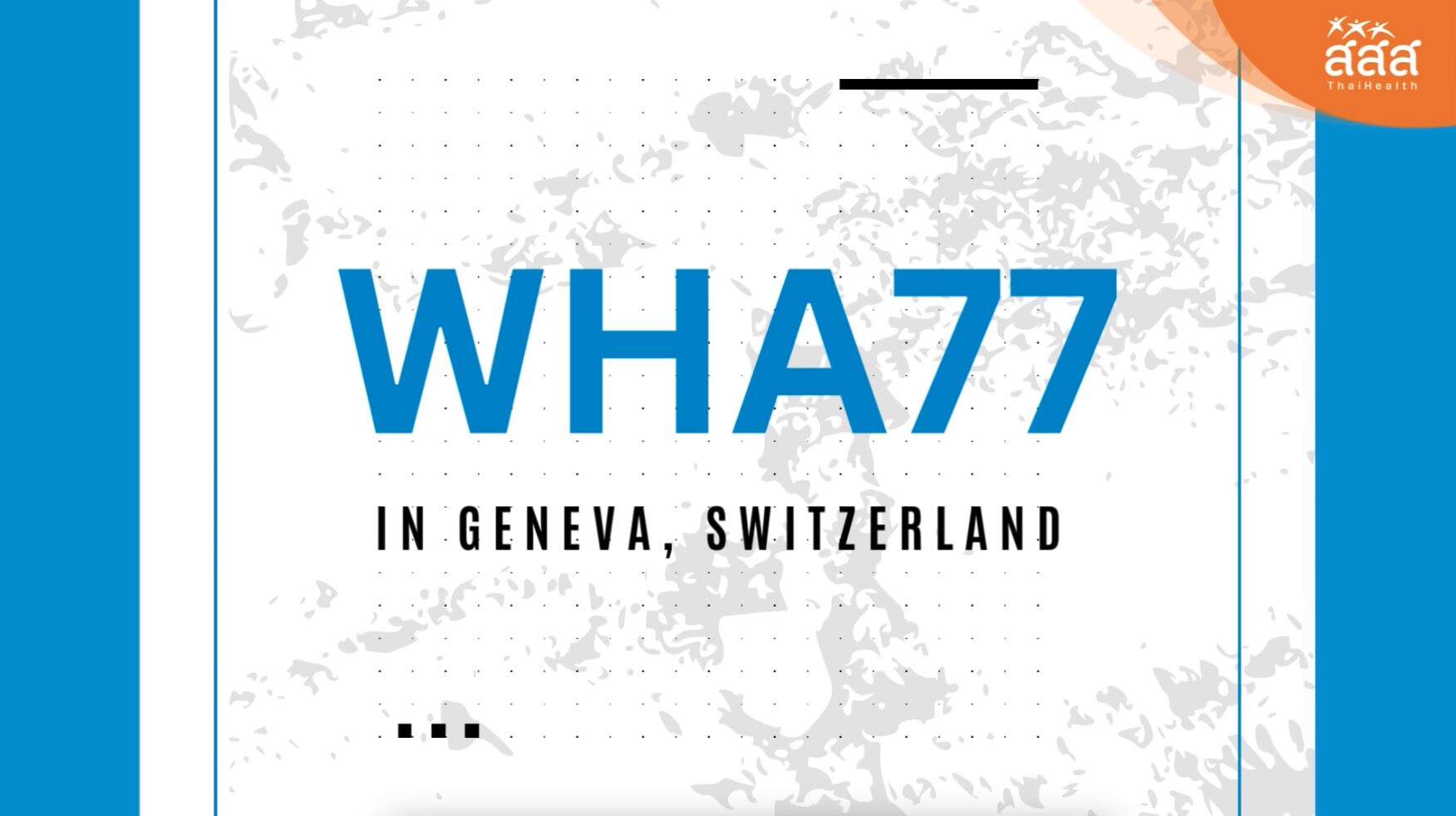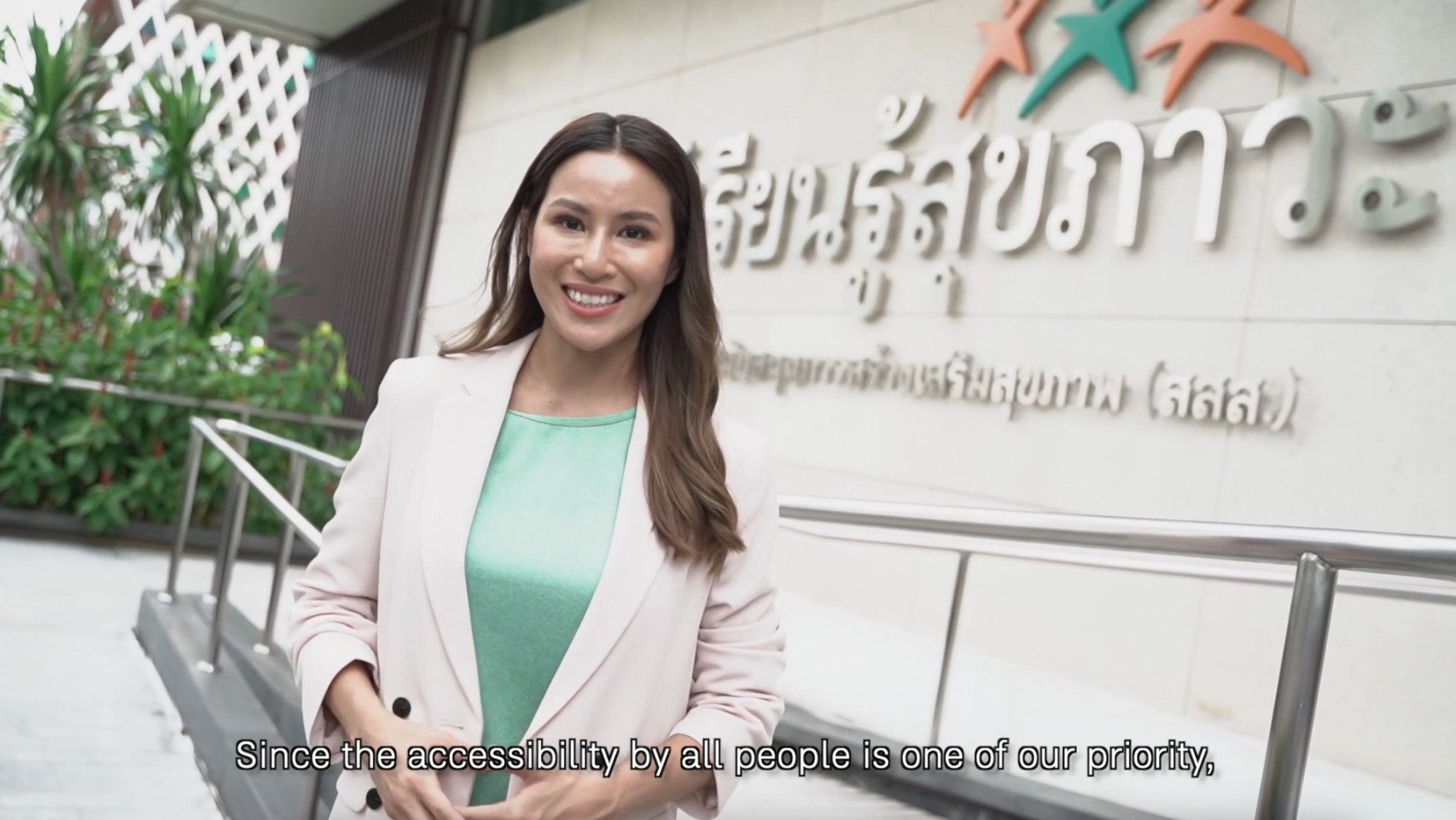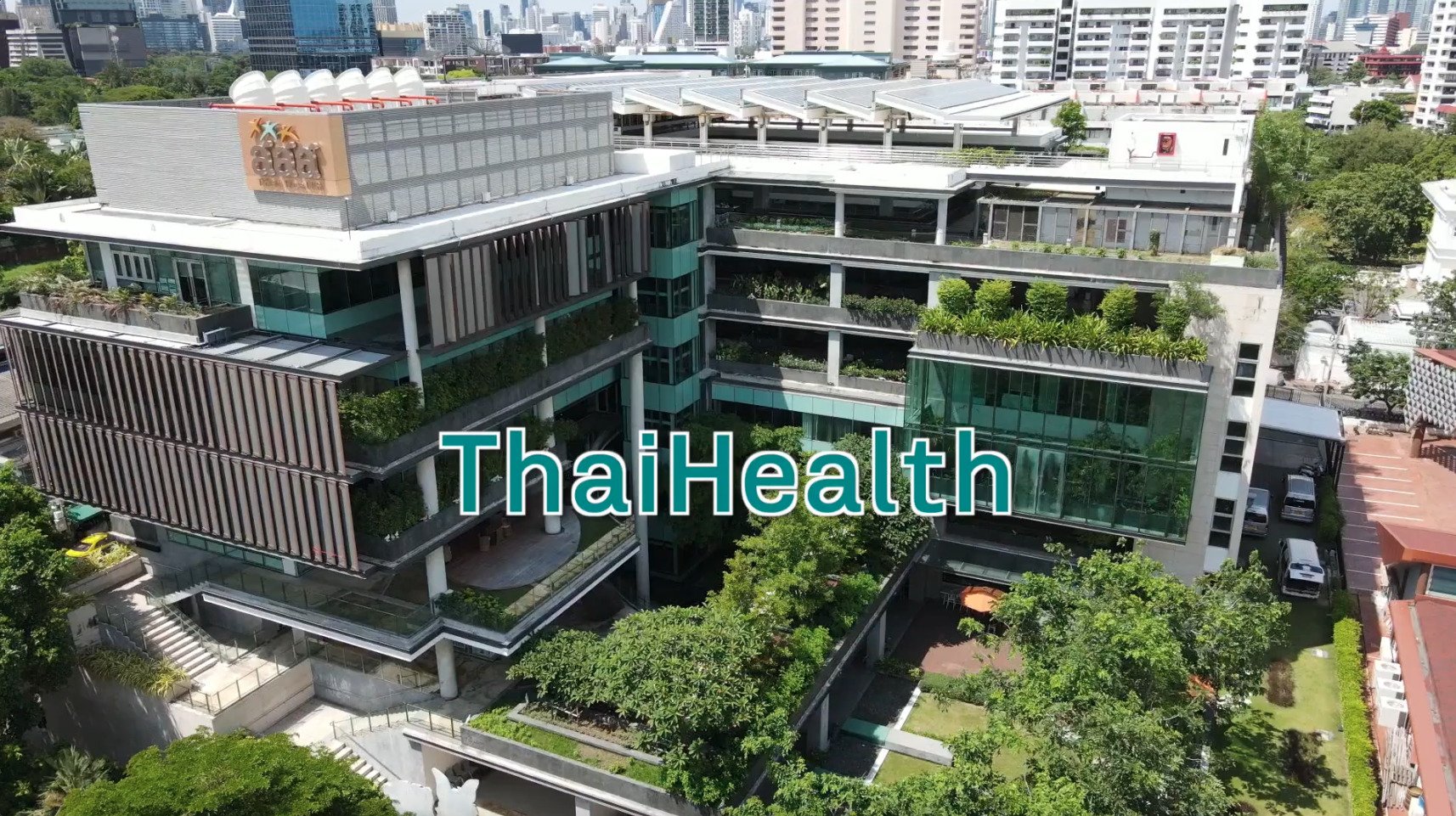
ABOUT THAIHEALTH
Thai Health Promotion Foundation (ThaiHealth) is an autonomous government agency established by the Health Promotion Foundation Act in 2001.
“All people living in Thailand have capability and live in society and environment conducive to good health.”
Thai Health Promotion Foundation (ThaiHealth) is an autonomous government agency established by the Health Promotion Foundation Act in 2001.
By “All people in Thailand,” it is meant that every person in Thailand, regardless of one’s race or nationality, is included in ThaiHealth’s vision.


UPDATES ON HEALTH PROMOTION
JOINT STATEMENT Unmasking Tobacco Industries: Protecting Children to Secure Their Future On this World No Tobacco Day (31 May 2025), the International Network of Health Promotion Foundations (INHPF) reaffirms our commitment to protect children and young people from the escalating harms of tobacco and nicotine products. We join the World Health Organization (WHO) and global partners in calling for urgent actions to “Unmask the Appeal” of tobacco and nicotine products. The use of nicotine products like vapes and nicotine pouches is skyrocketing. Vaping among school-aged children in some countries is alarmingly prevalent, even two to three times higher than cigarette smoking prevalence. The INHPF is particularly concerned by the aggressive tactics employed by the tobacco and nicotine industries using appealing product designs, alluring flavors, and youth-friendly marketing to create a false sense of safety that attracts adolescents to this lifelong harmful addiction. As the global landscape of tobacco and vape marketing evolves, so must our collective response. We call on governments, public institutions, and communities to take bold and coordinated actions to: Prioritize prevention across systems—align policies in health, education, digital safety, and trade to stop the tobacco and nicotine industries from targeting children and young people. Strengthen regulation and enforcement—pursue a complete ban of vapes, or ban sales to minors, ban flavours, and close regulatory loopholes. Comprehensive bans of...
29 May 68
114
Views
ThaiHealth Kicks Off “the Global Health Training Program” Aiming to Enhance Organization Capability to Drive Global Health Agenda On February 4, 2025, The Thai Health Promotion Foundation (ThaiHealth) has kicked off its Global Health Training Program 2025 (GHTP2025) jointly developed by the Partnership and International Relations Section and the Human Resources Unit. The program aims to enhance staff capacity and organization capabilities in global health, with a focus on equipping ThaiHealth to effectively engage with and contribute to the global health arena in a systematic and practical manner. The GHTP2025 program incorporates the INNE model for capacity development (comprising of building capacity at Individual, Node, Network, and Supportive Environment levels). It is specifically designed to build individual competencies through learning and hands-on experience in international affairs (Individual); empower their affiliated departments to engage effectively at the international level (Node); foster networks within and outside ThaiHealth (Network); and create an environment conducive to advancing global health learning (Environment). This program could also serve as a model for other agencies to integrate health knowledge with international engagement effectively through learning, hands-on practice, and expert networking. In initiating this policy, Dr. Pongthep Wongwatcharapaiboon, M.D., CEO of ThaiHealth, reaffirms his commitment to building the international competencies of ThaiHealth personnel to advance and contribute to health promotion in line with the organization’s strategic goals while...
11 Apr 68
112
Views
Somsak Directs ThaiHealth to Raise Awareness on E-Cigarettes to Protect Children and Youth Reaffirming the government’s stance against e-cigarettes, Somsak has assigned ThaiHealth to coordinate efforts with relevant agencies to address existing gaps. He expresses concerns over the deadly risks of “pod k” and approves the Centre for Alcohol Studies’ plan to advance knowledge, reshape societal values, and promote alcohol-free events. On February 27, 2025, at the ThaiHealth Center, the Thai Health Promotion Foundation (ThaiHealth), Mr. Somsak Thepsutin, Minister of Public Health and First Deputy Chairman of ThaiHealth, stated at the second board meeting of the year that the board approved the Centre for Alcohol Studies’ plan, focusing on enhancing capacity among personnel and expert networks and developing knowledge to advance various policies. Key policies include developing and enforcing the laws controlling the alcohol production and distribution by small-scale manufacturers, assessing the policy impact of major alcohol producers, promoting responsible behavior among youth and women, implementing alcohol-free policies for government events, improving access to alcohol cessation services, and supporting research and knowledge creation to push for practical and effective solutions to alcohol-related issues. “Prime Minister Paetongtarn Shinawatra’s government prioritizes the issue of e-cigarettes, which have been prevalent among children and youth. The Prime Minister has ordered relevant agencies to implement stringent measures within 30 days. The directive enforces a ban...
04 Apr 68
107
Views
ThaiHealth and the Low Salt Thailand Network back the “salt tax” in 2025, urging sodium reduction in food products and advocating for the Excise Department’s sodium tax to cut salt intake, improve public health, and ease the healthcare burden. Food manufacturers are called on to reformulate lower-sodium products as Thais are found to consume twice the WHO’s recommended sodium level, with children at risk of early kidney disease. On March 3, 2025, Dr. Pairoj Saonuam, M.D., Deputy CEO of the Thai Health Promotion Foundation (ThaiHealth), stated that daily sodium intake recommended by the World Health Organization (WHO) is no more than 2,000 mg. Nevertheless, Thais consume twice the recommended amount, approximately 3,636 mg per day, while Thai children consume 3,200 mg per day. Reducing sodium intake can help lessen the risk of serious health conditions. Currently, people tend to develop non-communicable diseases (NCDs) at younger ages. In fact, 10% of students in Bangkok Metropolitan Administration (BMA) schools have been found to have high blood pressure, while 14% are overweight or obese, which may contribute to increasing the risk of NCDs, particularly kidney disease. This calls for urgent action to curb sodium consumption, increase daily fruit and vegetable intake to 400 grams, and promote 150 minutes of weekly physical activity. ThaiHealth, together with the Low Salt Thailand Network, the Ministry of...
04 Apr 68
124
Views
PMAC 2025 SIDE MEETING Unboxing Innovations for NCDs Prevention (SMB206)
05 Mar 68
117
Views
PMAC 2025 Advocates for Healthy Active Meetings, Advancing Toward a Healthy OrganizationThe Prince Mahidol Award Conference 2025 (PMAC 2025) was held under the theme “Harnessing Technologies in an Age of AI to Build a Healthier World” from January 28 to February 2, 2025, at Centara Grand & Bangkok Convention Centre at CentralWorld, Bangkok. The event was organized with the support and collaboration from key national and international organizations, including the Prince Mahidol Award Foundation under the Royal Patronage, the Thai government, and international partners, such as the World Health Organization (WHO), the World Bank, USAID, JICA, the Rockefeller Foundation, and various UN agencies.At this event, the Partnership and International Relations Section of the Thai Health Promotion Foundation (ThaiHealth) played a key role in co-organizing a side meeting and promoting “healthy active meetings” throughout the conference. Since 2019, the Partnership and International Relations Section and the Healthy Lifestyle Promotion Section have been co-organizing healthy meetings at PMAC, reinforcing ThaiHealth’s commitment to fostering healthier conference environments.Driven by the Healthy Lifestyle Promotion Section in collaboration with the Network of Fatless Belly Thais (NFBT) and multi-sectoral partners, the “healthy active meeting” concept encourages meetings that support participants’ physical and mental well-being while minimizing the risks of non-communicable diseases (NCDs).Beyond PMAC, ThaiHealth has actively endorsed healthy meetings in WHO SEARO under Thailand’s name, leading to...
20 Feb 68
70
Views

THAIHEALTH PLANS











